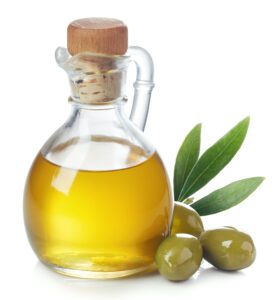
A newly studied chemical compound might be changing the way medical centers keep their hallways bacteria-free. With a low toxic impact and potent effectiveness, the revolutionary new guy on the block is turning heads and creating exciting possibilities.
The Skinny on Akwaton
Akwaton, the new compound studied by the University de Saint-Boniface in Winnipeg, Canada, has shown some serious promise. Researchers tested the compound against bacterial spores that attach to surfaces and are difficult to destroy; and the results were more than encouraging.
The spores, Bacillus subtilis, which are heat-tolerant and can survive a number of years, have become a problem in hospitals. Strains of bacteria like Staphylococcus aureus and Escherichia coli – better known as staph infection and E. coli – are also an issue for a building that can be crawling with germs . . . and that can give patients more trouble than what they were checked in with.
But Akwaton, at concentrations of only one percent and just 90 seconds of treatment, was able to destroy the bacterial problem. In fact, it was just as effective at more dilute concentrations as long as it was left to act for longer periods of time.
These findings are important for many reasons, starting with the effectiveness of the budding compound. Micro-organisms are fast becoming resistant to disinfectants and antibiotics, so we’re using much higher concentrations, with a typical level at around 4-10 percent. This could be leading to its own complications, with drug-resistance just the beginning.
Some toxic sanitizers could even be doing harm.
Antibacterial Hand Soap and Impaired Muscle Function
Science Daily posted a study of a widely used antibacterial hand soap that is now being linked to reduced muscle mass and possible repercussions for muscle function. Triclosan, found in many homes across the United States, can also be found in mouthwashes, toothpaste, and deodorants.
The U.S. Environmental Protection Agency estimated back in 1998 that over 1 million pounds of the soap is produced annually in our country, with detectable levels in everything from our waterways to algae to dolphins – even in human urine, blood, and breast milk. So the “test tube” experiments that showed impaired ability of heart muscle cells and skeletal muscle fibers are pretty sobering, especially the links to cardiac arrest.
The Bacterial Bottom Line
Why is Akwaton so important for the future of medical care? It’s fast-acting, non-toxic for humans at low concentrations, and has even been found to be environmentally safe in some studies. It’s ideal in hospitals and laboratories, and could also prove to be useful in the food industry.
And perhaps most importantly . . . in a world that is growing ever-resistant to the drugs we’ve been using for decades, it’s another option.
Pretty soon, it might be the first one.
Cited Sources
“SGM : News : Media Releases.” SGM : News : Media Releases. N.p., 08 Aug. 2012. Web. 20 Aug. 2012.
“Chemical Widely Used in Antibacterial Hand Soaps May Impair Muscle Function.” ScienceDaily.com. ScienceDaily, 13 Aug. 2012. Web. 20 Aug. 2012. https://www.sciencedaily.com/releases/2012/08/120813155515.htm.


Nanoplastics are extremely small plastic particles that range in size from 1 to 1000 nanometers (nm) To put this in perspective, they are much smaller than microplastics, which are typically less than 5 millimeters in size. Nanoplastics are so tiny that they are invisible to the naked eye and even under a simple microscope These […]


What is NAD? NAD, short for nicotinamide adenine dinucleotide, is a vital molecule found in every cell of your body, playing a key role in energy production, DNA repair, and overall cellular health. Often referred to as the “powerhouse molecule,” NAD levels naturally decline with age, leading to decreased energy, slower metabolism, and accelerated aging. […]


In recent years, the quality and authenticity of olive oil have come under scrutiny, with shocking revelations about widespread fraud in the industry. A groundbreaking episode of the popular news program “60 Minutes” shed light on this issue, exposing a disturbing trend of adulteration in many well-known olive oil brands The “60 Minutes” Investigation The […]